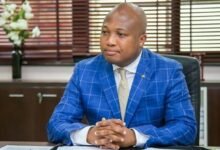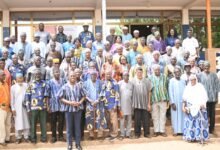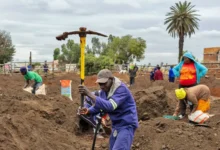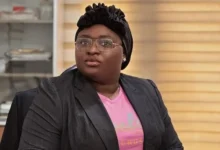
Hordes of Ghanaian fans threw their support behind Senegal when they swung into battle against Egypt in the African Cup of Nations (AFCON) finale held at the Olembe Stadium, in the Cameroonian capital of Yaounde on Sunday.
It is not too clear why most Ghanaians backed Senegal’s Téranga Lions. Maybe, they were touched by the Senegal story of not having clinched a single AFCON, after several heroic attempts. Perhaps, too, they did not want the seven-time winners Egypt to stretch the lead further.
Glaringly, it was reason for the pockets of celebration in Ghana as Senegal overpowered the Egyptian Pharaohs 4-2 on penalties after 120 minutes of energy-sapping exchanges. It was a deserved victory – Senegal claiming the title at the third time of asking, after unkind defeats in the 2002 and 2019 finals.
Wild celebrations exploded in the capital, Dakar, after Sadio Mane sealed victory over Egypt on penalties.
To mark the momentous feat, Senegal President Macky Sall declared Monday a public holiday to allow the nation and its long-suffering fans celebrate and make merry. You cannot begrudge them. They deserve it. They have fought ferociously for it.
Many who have followed Senegal football would be excited for Téranga Lions’ coach – Aliou Cisse. After playing his heart out, he sorely missed the title as a player about 20 years ago when they lost 3–2 on penalties to Cameroon, after 120 minutes of ‘barren’ football. Come to think of it, he threw away his kick during the shoot-out on that occasion and wept uncontrollably thereafter. It was an agony French coach Bruno Metsu (nicknamed ‘White Sorcerer’) struggled to come to terms with.
Today, Cisse is the coach who has brought immeasurable joy to the faces of Senegalese fans. Over the seven years that he was in charge of Senegal, he demonstrated great character, improvement and self-belief.
Cisse, a former Under-23 assistant coach (2012-2013), was confirmed in 2015 – the same year he became Téranga Lions’ substantive trainer. After missing out on the title two years ago against Algeria, there were fierce calls for his head, but he survived the onslaughts of criticism as he nourished on the blessing of the local Football Association. He may have survived because the FA’s belief in his philosophy.
Of the 24 coaches at the Cameroon AFCON, 14 of them were locals – suggesting the continent is now beginning to have a great deal of conviction in their own. Local coaches appear to have conked out through to a level long held in reserve for European coaches
What has been missing is the respect and support accorded home-brewed coaches as compared to their foreign counterparts.
For the most part, African coaches have been forced to settle for interim positions, often being replaced before the major competitions came around.
“We felt powerless and hurt by these choices,” Mali’s national coach Mohamed Magassouba told DW. “To those above, we were not good enough to manage our national teams. No matter what we did, we were not supported.”
This lack of confidence in African coaches has often been explained through the prism of results. The statistics point slightly in favour of foreign coaches, but according to Magassouba, this is misleading, with foreign coaches given more support and backing than their native counterparts.
“Expats have not won more competitions than native coaches. In addition, they have always had more financial help, and this has made their work easier,” he said.
Of the 32 editions of the AFCON since its creation in 1957, 15 have been won by native coaches. Of these, Charles Kumi Gyamfi of Ghana (1963, 1965 and 1982) and Hassan Shehata of Egypt (2006, 2008 and 2010) lifted the trophy three times each with their respective nations.
Of course, many European football coaches have carved a niche for themselves in Africa: Frenchman Claude Le Roy, nicknamed “the White Wizard,” led Cameroon to conquer Africa (1998), German Winfried Schäfer (2002 AFCON glory with Cameroon) and more recently, Herve Renard, another Frenchman who won the AFCON with Zambia (2012) and Cote d’Ivoire (2015).
With Ghana’s Serbian trainer Milovan Rajevac (sacked) failing to get the Black Stars pass the first round in the nation’s most disastrous AFCON campaign, and with Senegal’s Coach Cisse blowing the world away – producing a magnificent performance on Téranga Lions’ journey to capturing their first continental Golden Fleece, a number of Ghanaians are agitating for the appointment of a local coach, once again.
The Ghana FA is expected to announce the appointment of Rajevac’s successor, perhaps this week. It is a cagey adventure for them as they would have wished to have Borussia Dortmund’s trainer-scout Otto Addo – instead of Chris Hughton, a former West Ham United and Newcastle United boss – who appears to have the tacit backing of government. At present, they are the two names being bandied about for the vacant coaching role.
In fact, Hughton is already reported to have met with President Akufo-Addo at the Jubilee House, where he was purportedly assured of becoming Ghana’s next coach.
The 63-year-old Hughton is said to be born in England to a Ghanaian father, Willie, and an Irish mother, Christine and played for Northern Ireland during his football career.
Question is: Is he the man to prepare the Black Stars for the crucial Qatar 2022 World Cup play-off in March, next month? If yes, what are we waiting for? The clock is ticking fast! Are we really serious as a nation?
Anyway, whatever be the case, we must show great respect and consummate support to whoever is appointed to handle the ailing national team. The Stars are in near comatose and we need to work on them as quickly as possible to stand any chance of ousting Nigeria to the Qatar ticket – and ultimately building the team to its halcyon days.
BY JOHN VIGAH








